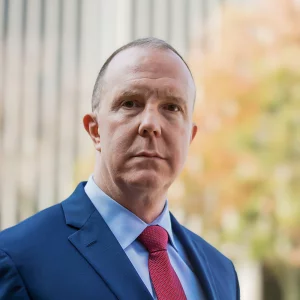District and Circuit Courts, and What They Do
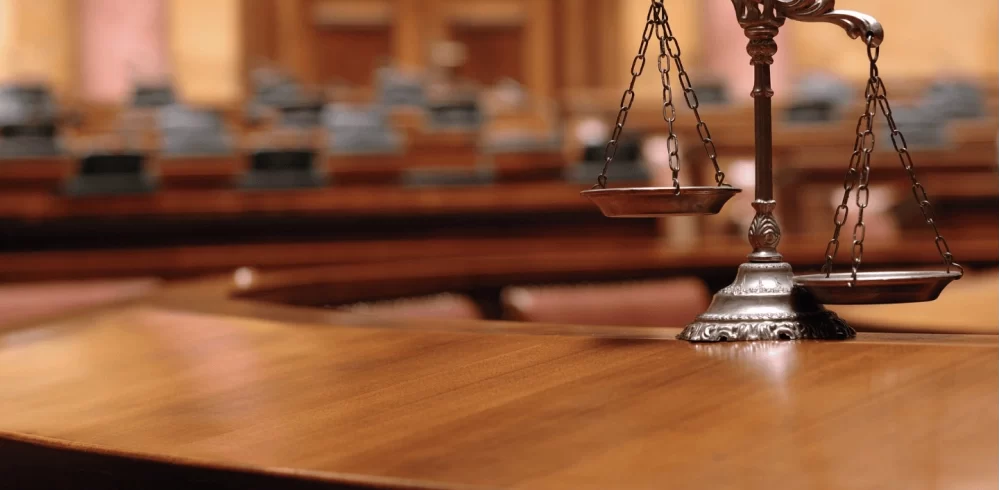
Key Takeaways
- In Michigan, all adultcriminal cases begin in the local, district court.
- District courts have full jurisdiction over civil infraction and misdemeanor cases, but they only handle the very beginning stages of felony cases.
- Unless it is dismissed or reduced to a misdemeanor in the district court, a felony case will be transferred “up” to the county circuit court.
- A misdemeanor is classified as an offense punishable by not more than 1 year in the county jail.
- By contrast, a felony is an offense that is punishable by more than 1 year in the state prison.
- A district judge can sentence a defendant to the county jail for up to 1 year, but no more. A circuit Judge can order either jail or prison, for up to life.
- Juvenile cases are handled exclusively by the county probate court.
The 2 Main Types Of Courts
There are numerous courts in Michigan. It’s easy to get confused or wonder what the differences are between them. In this article, we’re going to briefly examine their roles in criminal cases. Basically, the entire court system can be divided into 2 kinds:
- District, circuit, and probate courts are called “trial courts,” meaning that both civil cases and criminal cases are handled there all the way through final judgment or verdict. This, of course, includes all criminal and DUI cases, which will be our focus in this piece. They are sometimes called the “lower courts.”
- The Michigan Court of Appeals and the Michigan Supreme Court are the state’s appellate courts. This is where a party goes to appeal a judgment, verdict or ruling made against him or her.
There is also a Michigan Court of Claims, which handles lawsuits against the State of Michigan. In practice, it has essentially the same jurisdiction of a circuit court (although there is no right to a jury trial there). Judges from the Court of Appeals, assigned by the Michigan Supreme Court, preside there.
All adult criminal (and DUI) cases start out and are ultimately resolved in either a district court or a circuit court. These state courts are trial courts, where such matters are heard and decided.
Probate courts handle all juvenile criminal cases, along with matters like wills, estates, conservatorships, and guardianships. Since our concern in this article will be adult (non-juvenile) criminal matters, we’ll limit our discussion to how those cases work in the district and circuit courts.
The District Court
Every adult criminal case begins in a district court. Just to be clear, things like driving on a suspended or revoked license (DWLS/DWLR) and DUI (in Michigan, the actual term is “Operating While Intoxicated,” or “OWI” for short) are criminal offenses.
District courts are local, meaning that they handle criminal cases brought within the communities each court covers. A criminal charge must always be brought where the alleged crime was committed.
Most district courts, at least here in the Greater-Detroit area, have several municipalities under their jurisdiction. That said, there are a few courts that only handle cases for a single (usually larger) city.
Location and Jurisdiction
Let’s look at a few of the busier courts in the local Tri-County area of Wayne, Oakland and Macomb to help explain this –
Wayne County
- 16th District Court (located in Livonia) – Handles cases ONLY for the City of Livonia.
- 33rd District Court (located in Woodhaven) – Handles cases for Brownstown, Flat Rock, Gibraltar, Grosse Ile, Rockwood, Trenton, and Woodhaven.
- 34th District Court (located in Romulus) – Handles cases for Belleville, Huron Township, Romulus, Sumpter Township, Van Buren Township and Detroit Metropolitan Airport.
- 35th District Court (located in Plymouth) – Handles cases for Canton, Northville (both City and Township), and Plymouth (both City and Township).
- 36th District Court (located in Detroit) – Handles cases ONLY for the City of Detroit.
Oakland County
- 44th District Court (located in Royal Oak) – Handles cases for the cities of Berkley and Royal Oak.
- 48th District Court (located in Bloomfield Hills) – Handles cases for Birmingham, Bloomfield Hills, Bloomfield Township, Keego Harbor, Orchard Lake, Sylvan Lake, and West Bloomfield.
- 51st District Court (located in Waterford) – Handles cases only for the Township of Waterford.
- 52-3 District Court (located in Rochester Hills) – Handles cases for Addison Township Auburn Hills, Lake Angelus, Oakland Township, Orion Township, Oxford Township, Rochester, Rochester Hills, Village of Lake Orion, Village of Leonard, and Village of Oxford.
- 52-4 District Court (located in Troy) – Handles cases for the cities of Clawson and Troy.
Macomb County
- 37th District Court (located in Warren) – Handles case for the cities of Centerline and Warren.
- 40th District Court (located in St. Clair Shores) – Handles cases ONLY for the city of St. Clair Shores.
- 41-A District Court – Shelby (located in Shelby Township) – Handles cases for Macomb Township, Shelby Township, and the City of Utica.
- 41-A District Court – Sterling (located in Sterling Heights) – Handles cases ONLY for the City of Sterling Heights.
- 41B District Court (located in Clinton Township) – Handles cases for Clinton Township, Harrison Township and Mt. Clemens.
- 42-2 District Court (located in New Baltimore) – Handles cases for New Baltimore, Chesterfield Township, Lenox Township and New Haven.
As the above sample shows, most courts oversee cases for multiple cities, townships, and villages, while a few simply handle the cases for a single municipality.
The Steps In A Criminal Case
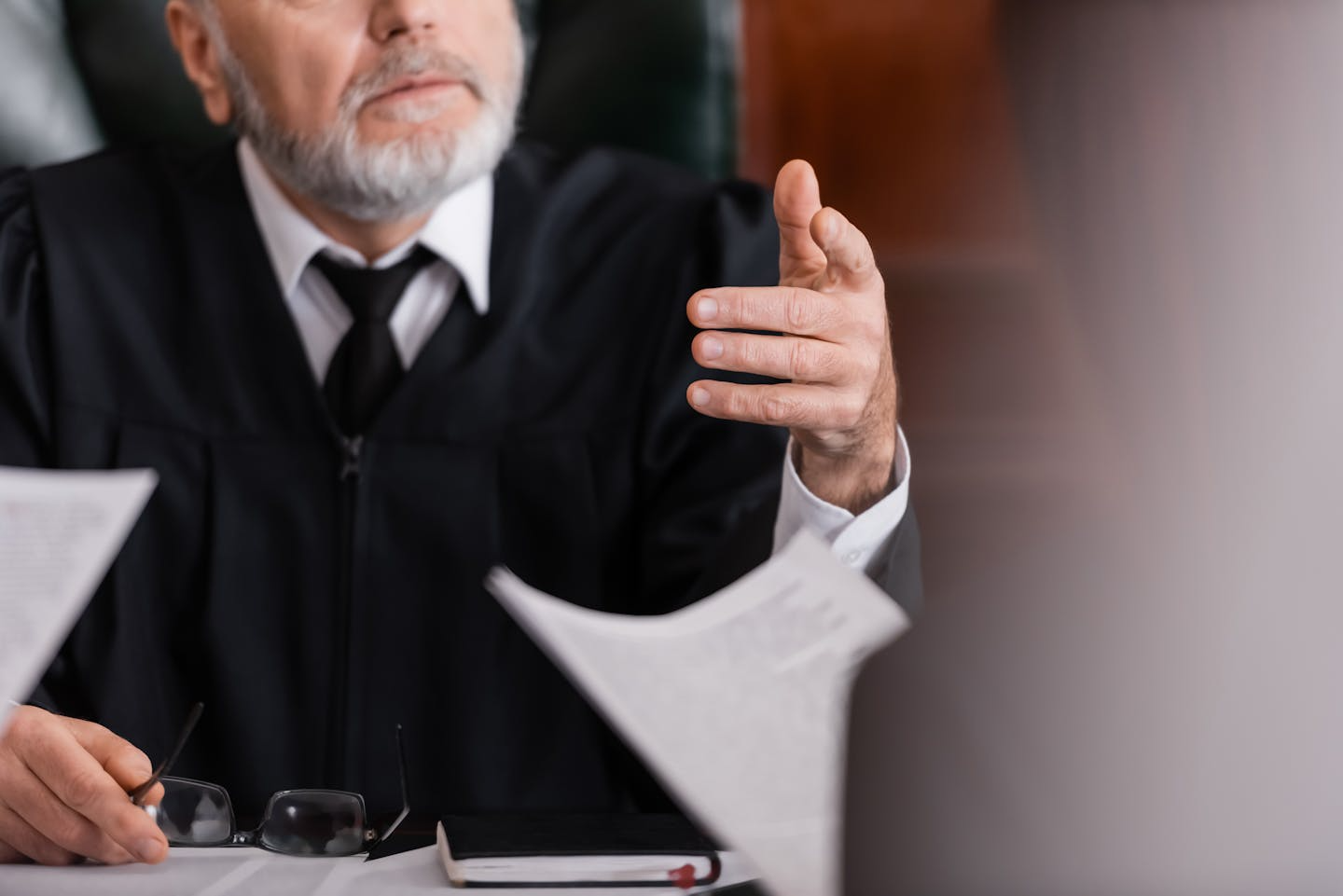
To better understand what the courts do, it will be helpful to briefly explain the stages of a criminal case from beginning to end:
The Early Steps
Arraignment (applies to both felony and misdemeanor cases) – A person stands before a judge or magistrate and is told what charge (or charges) are being made against him or her, advised of his or her rights, asked how he or she pleads (ALWAYS plead “not guilty” at this stage unless specifically advised by your lawyer as part of a planned defense strategy), and then a bond is set.
Charged With A Criminal Offense?
Win Compensation and KEEP MORE Money with Jeffrey Randa and Associates
“Bond” includes any money necessary to secure a person’s release from jail, and any conditions imposed by the court, such as not leaving the state without the judge’s prior permission, as well as things like “no drinking” along with a requirement to test periodically to ensure compliance.
Essentially, bond is like probation, except that probation is imposed after the case has been resolved, whereas bond and bond conditions only apply while the case is pending.
Probable cause conference (applies ONLY to felony cases) – Before being “bound over” to circuit court to face further proceedings on a felony charge, a person is entitled to a hearing, in the district court, to determine if there is probable cause to believe that a crime was committed, and probable cause to believe he or she committed it.
At the arraignment, a probable cause conference must be scheduled within no less than 7 but no more than 14 days. The court must also schedule a preliminary examination (also called a probable cause hearing) no less than 5 days but no more than 7 days after the date of the probable cause conference.
The probable cause conference is really a meeting of the prosecutor and defense lawyer to discuss the case. There is no limit to what can be discussed there.
Most of the time, the parties will talk about plea bargains (this can include reducing a pending felony to a misdemeanor), extending time (sometimes it’s helpful to waive the time requirements, adjourn the case and push the dates forward so the parties can continue negotiations), and/or the evidence.
Usually, the probable cause conference will result in either some kind of negotiated plea bargain, or the defendant will “waive” his or her right to the preliminary examination (probable cause hearing) and agree to have the case transferred to the circuit court for further proceedings.
Probable cause hearing (applies ONLY to felony cases) – If a defendant insists, the prosecutor is required to put on a kind of “mini trial” (the terms “probable cause hearing” and “preliminary exam” mean the same thing) before the judge and prove, as noted above, that there is probable cause to believe a crime has been committed, and that the defendant committed it.
If the judge is satisfied that there is an honest question of fact about these things, then the case is “bound over,” meaning sent to the circuit court for the county in which the district court is located.
If the evidence falls short on either point, then the charge is dismissed.
The Middle Stages
Pre-trial (applies in both felony and misdemeanor cases) – A pretrial is a meeting, held in the courthouse, between the prosecutor and the defense lawyer, before trial (hence the term “pretrial”), to discuss the case. There can be (and often are) multiple pre-trials in any given case as the parties work toward negotiating a way to resolve it.
Plea (applies in both felony and misdemeanor cases) – By far, most criminal charges are resolved through some kind of plea arrangement or plea-bargain agreement. Pleas and the plea-bargaining process affects almost every criminal case. Any detailed discussion of it would take up more space than we have here.
A “plea” can include any of the following 5 kinds of agreement:
- A plea bargain, meaning a deal to reduce the charge(s) to something less serious. If a person is facing multiple charges, this can include dismissing one or more of them.
- A “straight up” plea, meaning there is no plea bargain, and the person is simply not going to contest the charge(s).
- A “no contest” plea, meaning that the person doesn’t openly admit guilt, but does not contest the charge, either. This results in a finding of guilt and, therefore, a conviction.
- Either a plea bargain, or a “straight up” plea with a sentencing recommendation made by the prosecutor. Note that a judge is NOT bound by any such recommendation, but they usually do follow it, if one is made.
- Either a plea bargain or a “straight up” plea with a sentence agreement negotiated with the court. A sentence agreement is something worked out with the judge before the case is resolved and is binding, unlike a sentence recommendation made by the prosecutor.
The judge has final authority to accept (or reject) any proposed plea bargain, but that’s usually not a problem. Whatever plea is finally accepted becomes the person’s conviction offense.
Trial (applies in both felony and misdemeanor cases) – This is what takes place when a defendant fights the charge(s). A trial can be decided by a jury (this is called a “jury trial”) or before a judge alone, without a jury (this is called a “bench trial”).
To convict someone of a charge, the prosecutor must prove his or her guilt “beyond a reasonable doubt.”
The finding of whether someone is guilty or not guilty is called a “verdict.” A verdict of guilty to any offense becomes a person’s conviction offense.
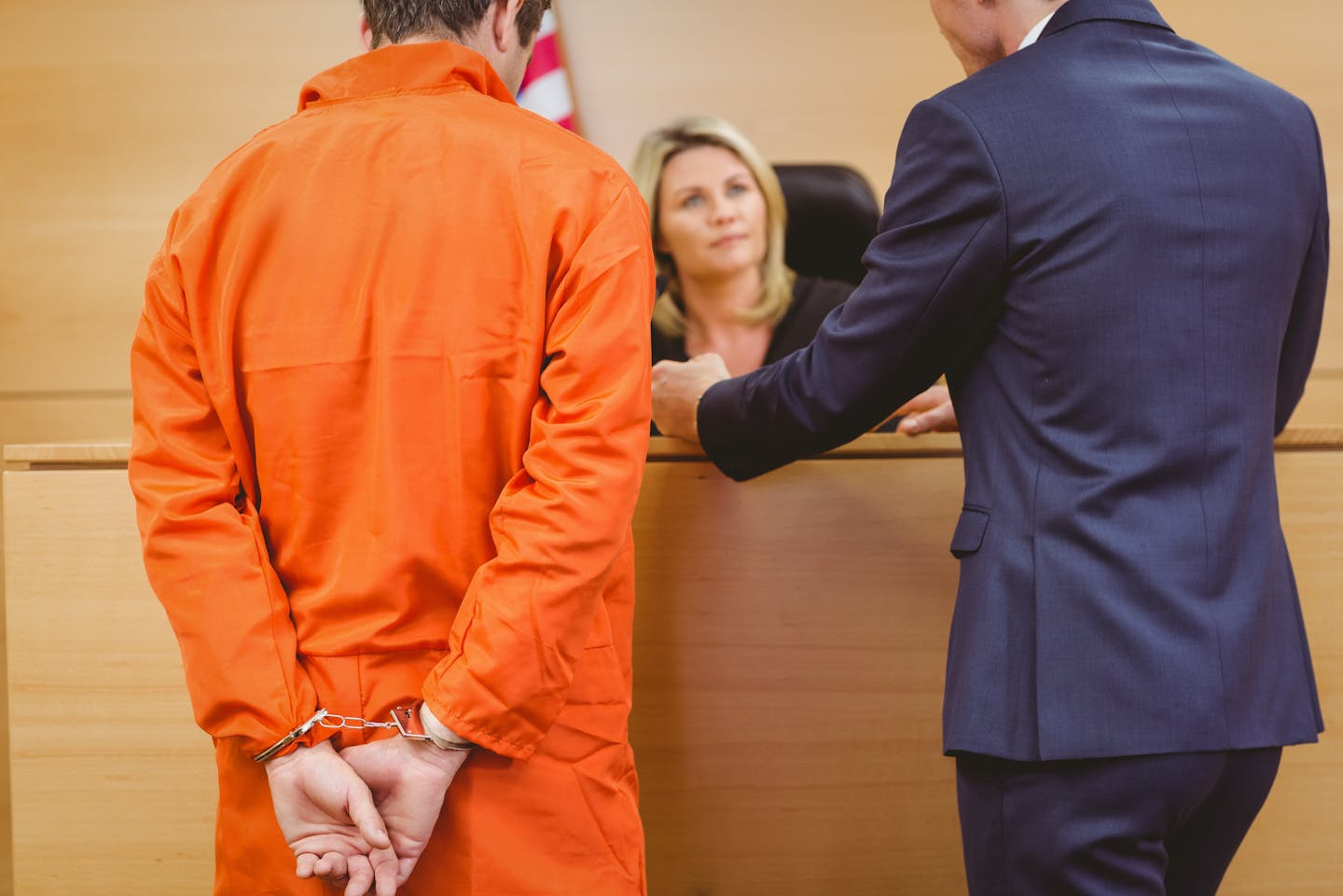
The Last (And Most Important) Proceeding
Sentencing (applies in both felony and misdemeanor cases) – This is what happens to a person as the result of a conviction. The judge imposes a sentence, which can include any and/or all of the following:
- Incarceration – Every offense carries a maximum possible period of confinement, and some carry minimums.
- Tether (house arrest) – A person can be ordered to remain at home (sometimes exceptions are made for work, or necessary medical treatment), on tether, for as long as specified by the judge. This can be required in addition to or instead of jail.
- Probation – Unless a person is sentenced to prison following a felony conviction he or she can and, indeed, is likely to be placed on probation for a certain amount of time. Probation means a person isn’t locked up.
To remain out of jail or prison and stay on probation, he or she must follow rules set by the court. Failure to follow any of those rules will bring a person back before the judge for a probation violation and can result in incarceration or other penalties.
Here are several of the most common conditions (i.e. “rules”) of probation:
- Do not leave the state without prior permission of the court.
- No use of alcohol or drugs, with periodic breath and/or urine testing to prove compliance.
- Alcohol monitoring, meaning either an ankle tether that detects if a person drinks, or a portable, cellular breath tester that reports results to a monitoring center.
- Complete some kind of class(es), education, counseling and/or rehab.
- Report to the probation department as directed.
- Not violate any law of any state or the United States.
- Complete community service
- Do anything else the court orders, and do NOT do anything the court forbids.
District Court Authority Over Felony Cases
A district court judge’s role in felony criminal cases is limited to the beginning stages of the case. This means that the district court will only handle the arraignment (setting bond and bond conditions, a function that can be handled by the court’s magistrate) and the probable cause conference and/or probable cause hearing (sometimes called a “preliminary examination).
Unless a felony charge is dismissed, or there is a negotiated deal to reduce it to a misdemeanor while it is pending in the district court, it will be transferred to that county’s circuit court to be resolved.
If a felony charge can be negotiated to a misdemeanor, it’s usually better to do that while it’s in the district court, and before it is “sent up” to the circuit court. There are some exceptional situations, however, where it’s better to work out such a plea bargain in the circuit court, rather than in the district court.
District Courts And Misdemeanor Cases
District courts handle every step and all proceedings in both civil infraction (these are usually, but not always, traffic violations) and misdemeanor cases:
- Reviewing and signing any preliminary warrants or complaints.
- Arraigning the person on all charges.
- Scheduling and holding pre-trial conferences.
- Hearing any motions to challenge evidence.
- Accepting a plea or plea bargain or conducting a trial.
- Negotiating a sentence agreement, in some situations.
- Imposing the sentence (this can include fines, probation and/or jail).
- Supervising a person on probation.
This means that a district court will handle a misdemeanor case from the beginning stages all the way to plea or trial, and through sentencing, as well.
Michigan Driver’s License Was Revoked Or Suspended?
Ready to Drive Again? Let’s Restore Your License – Guaranteed!
Here are some of the most common misdemeanor cases that are handled in the district court:
- Assault and Battery
- Civil Infractions (tickets and traffic violations)
- Disorderly Conduct/Disorderly Person
- Domestic Violence
- Driving While License Suspended (DWLS)
- Driving While License Revoked (DWLR)
- Indecent Exposure
- Leaving the Scene of a Personal Injury Accident
- Leaving the Scene of a Property Damage Accident
- Operating While Intoxicated (OWI, a/k/a “DUI”)
- Reckless Driving
To be sure, there are plenty of other misdemeanor offenses, all of which are handled in the district court.
Sentencing Authority In Misdemeanor Cases
District court judges have the authority to sentence a person to up to 1 year in the county jail. A district judge cannot sentence a defendant to more than 1 year in jail. Therefore, he or she cannot send anyone to the state prison.
As far as probation, a district judge can impose any lawful conditions on a person, including all those listed above.
The Circuit Court
Every County in Michigan has a Circuit Court.
- In Wayne County, it’s in Detroit.
- In Oakland County, it’s in Pontiac.
- In Macomb County, it’s in Downtown Mt. Clemens.
Cases Handled in Circuit Court
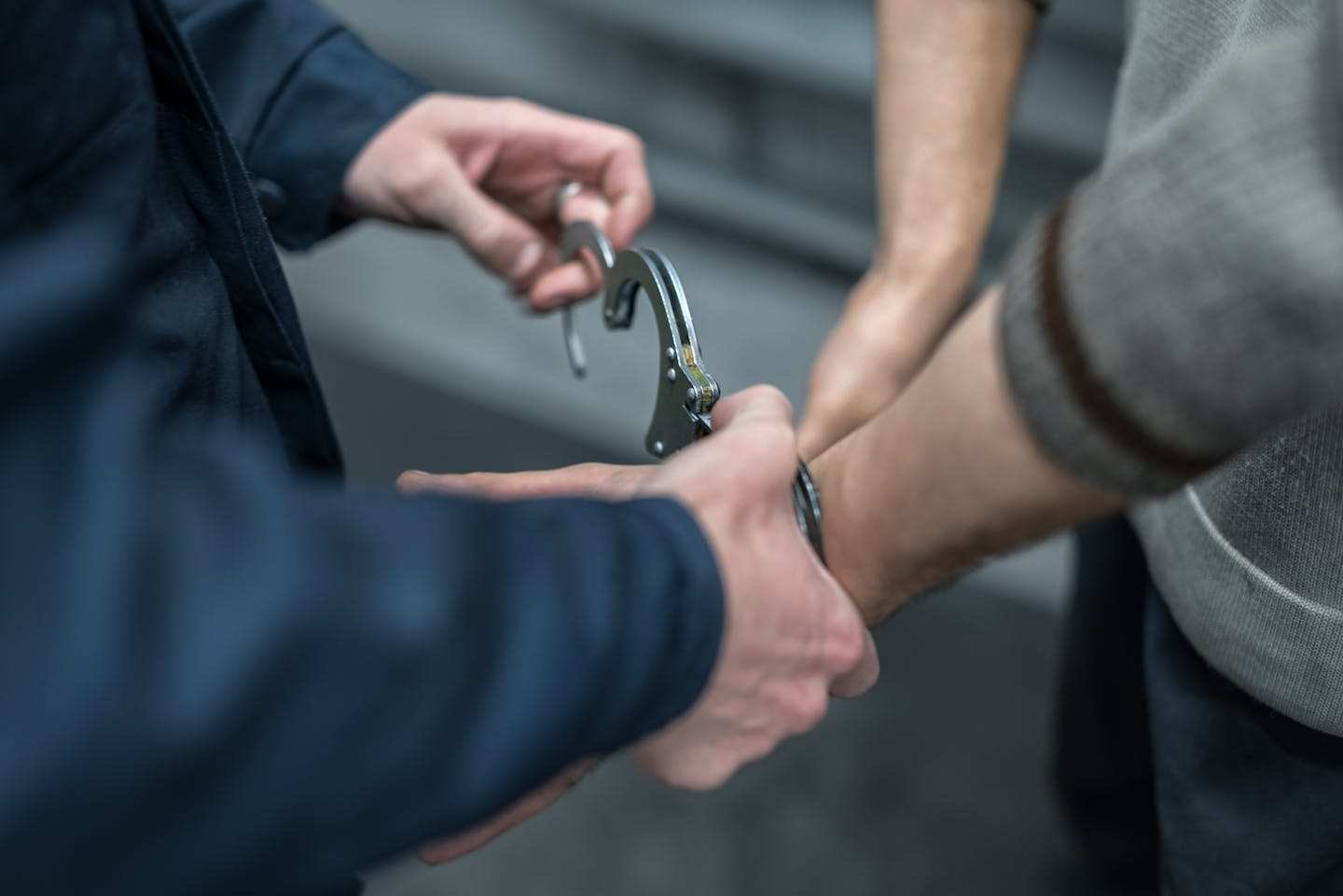
All felony cases are ultimately decided in the circuit court. Depending on the offense, a circuit judge has the power to impose a sentence of up to life in prison, without parole.
Likewise, a circuit judge can also impose nothing more than fines and costs, straight probation, or a combination of jail with probation, as allowed by law.
Below are some common felonies handled in the circuit court:
- Aggravated Indecent Exposure
- Aggravated Assault
- Assault With a Deadly Weapon
- Assault/Resist/Obstruct a Police Officer
- Carrying a Concealed Weapon
- Criminal Sexual Conduct
- Delivery/Manufacture of a Controlled Substance
- Embezzlement
- Operating While Intoxicated (OWI a/k/a “DUI”) 3rd Offense
- Possession of a Controlled Substance (drug possession)
Of course, circuit courts also handle murder charges, but thankfully, such cases aren’t as common as those listed above.
If a person is sent to prison (rather than the county jail), the circuit court is forever done with the case. Once in the state prison system, the Michigan Department of Corrections (MDOC) has complete authority over any such individual.
When a state prisoner is released early, then he or she will be on parole through the MDOC and CANNOT be on a term of probation under the authority of the court.
Why Work With Jeffrey Randa and Associates
Knowing about district and circuit courts is great, but really knowing them, meaning being familiar with the people who run things and the intricacies of how each court works, is what’s most important.
This is why our firm concentrates its criminal and DUI practice to the Greater-Detroit area of Wayne, Oakland, Macomb and the surrounding counties. While our driver’s license restoration practice is state-wide, we deliberately limit where we’ll go to court for criminal and DUI cases.
This puts my team and I in the same courts, day-in and day-out. When all is said and done, a lawyer is either selling his or her experience in a particular court, or getting his or her tuition paid to learn how things work there.
When your future is at stake, the last thing you want is for your lawyer to show up in some distant court he or she doesn’t know well. This is NOT the time for the defense attorney you hired to learn how things work in the court where your case is pending, or to meet your judge for the first time.
We don’t do that.
Our firm handles the same kinds of cases in the same circle of courts every single day. We have over 60 years of combined criminal law experience. As a result, we know what will fly and – just as important – what won’t in the various courts where we regularly practice.
Confidence and Support For Your Day in Court
For all our experience and knowledge, my team and I bring another key element to the table: integrity. We pour our hearts and souls into the cases we take. We genuinely care about our clients and firmly believe our job is to help good people out of bad situations.
Judges respect that. We truly live by the old admonition that it takes a lifetime to build and maintain a good reputation, but it only takes one stupid move to ruin it.
When you trust us to handle your case, we will use our unsurpassed experience and knowledge to put everything we have into producing the very best result possible. You can rest easy knowing that we’ll do everything humanly and legally possible to get you through your case intact.
No lawyer can do more, and we will never do less.
As you explore your options, make sure you give our office a ring. We offer a free consultation, done confidentially, and, best of all, over the phone, right when you call.
Our firm is entirely made up very friendly people. We’ll be glad to answer your questions and explain how things work. We’ll even be happy to review information provided by to you any other lawyer.
We can be reached Monday through Friday, from 8:30 a.m. until 5:00 p.m., at 586-465-1980.




